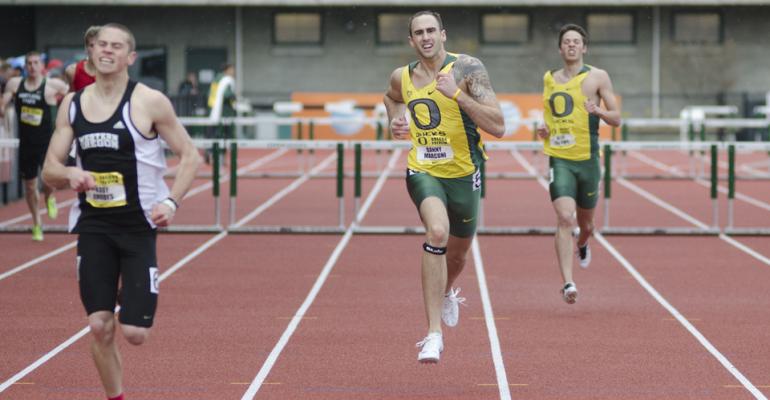As the London Olympics wrap up, I’ve been talking with a few financial advisors this week who participated in the international games when they were younger years earlier. It’s striking how their experiences as athletes have a bearing on the manner in which they conduct their business today.
Tom McGuirk, who runs a HighTower practice in Palo Alto, Calif. with $350 million in AUM, competed in track and field on behalf of Ireland (his parents were Irish) at Atlanta in 1996 and in Sydney, Australia in 2000. His specialty was the 400-meter hurdles, and the Irish Olympic Federation had an eye on him while he was in college at University of California at Berkeley; he was a three-time All-American and a top-ranked athlete.
The training was intense: weight training and hurdles in the morning, and track in the afternoon. McGuirk, who has been watching the games all week, said the key to succeeding is in establishing a stride pattern between the hurdles-- different patterns are needed between different sections of hurdles.
“You need to be disciplined and let the race come to you, and not be caught up in what the person in lane 5 or lane 3 is doing. You need to run your own race,” McGuirk, 41, said. It also involves dealing with adversity, such as handling an injury or winding up in lane 8 where it’s difficult to see the competitors.
The comparison with financial planning for clients speaks for itself.
“You want to stay on course, so to speak, with the planning and really be unemotional. I’ve personally felt it when we had a lot of volatility in the marketplace. I’m able to stay unemotional, make good decisions and articulate the goal for the client,” McGuirk said. “I think that all comes from my training.”
Emotion is the kiss of death when facing the hurdles in the 400 meter, he added.
“Your stride pattern is going to change, you’re going to hit a hurdle. You need to stay focused and curb that enthusiasm until you get to the tenth hurdle, then you dive for the finish line,” he said.
John Stollmeyer, a broker at Raymond James & Associates in Indianapolis, played midfield for the U.S. soccer team in Seoul in 1988. He sees comparisons between the routines that are necessary to build a book of business and the relentless drilling that was necessary to prepare for competition on the field.
“You may not see the incremental gains you get out of it. It’s similar in this business. You may call a hundred times, and finally something goes through,“ said Stollmeyer, 49.
Mental discipline is especially essential. “I see a lot of guys that were better than I was, had better skills. But mentally they couldn’t put up with some of the stuff that goes around it all--the grind of travel, the changes of food, whether you’re getting success right away, whether you’re getting the playing time you want,” he said.
He recalled something his father told him years ago.
“Everybody has the will to win,” Stollmeyer said. “People that actually win are those who have the will to prepare to win. I always keep that in my mind. There are days where it’s hard, and you come back in and you do it again.”

